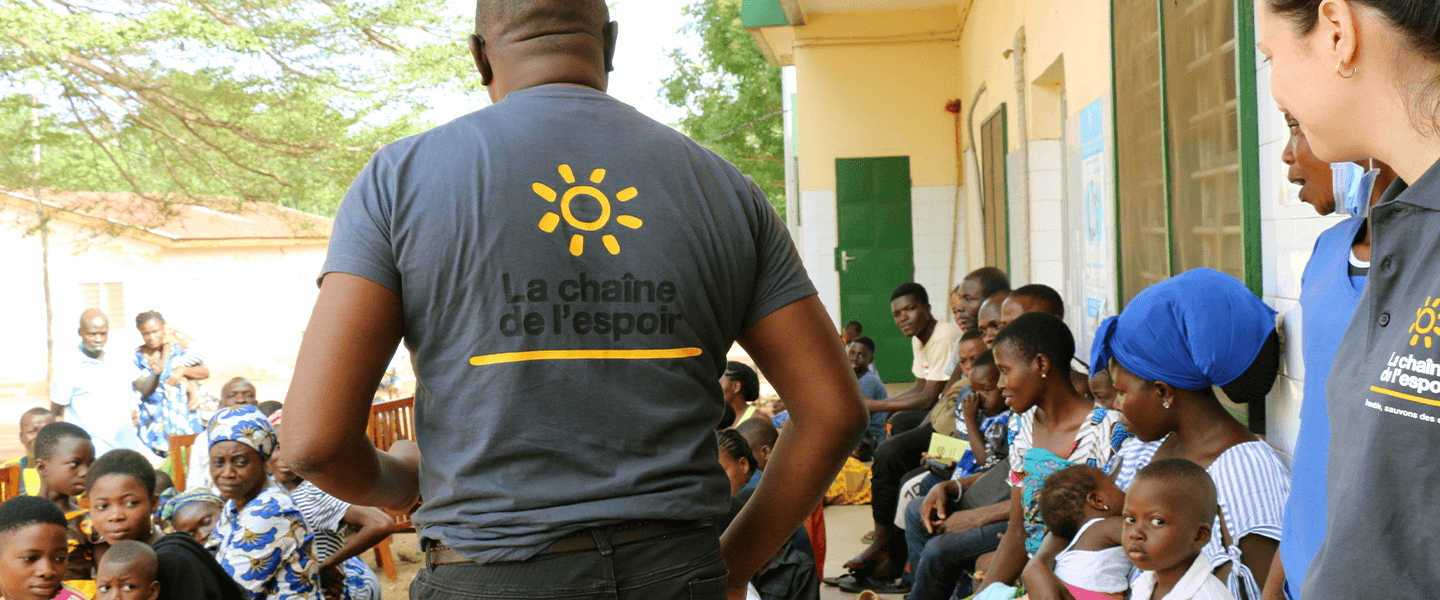We are expanding our operations in the Indian Ocean and strengthening our presence in Togo, India, Nepal and Haiti.
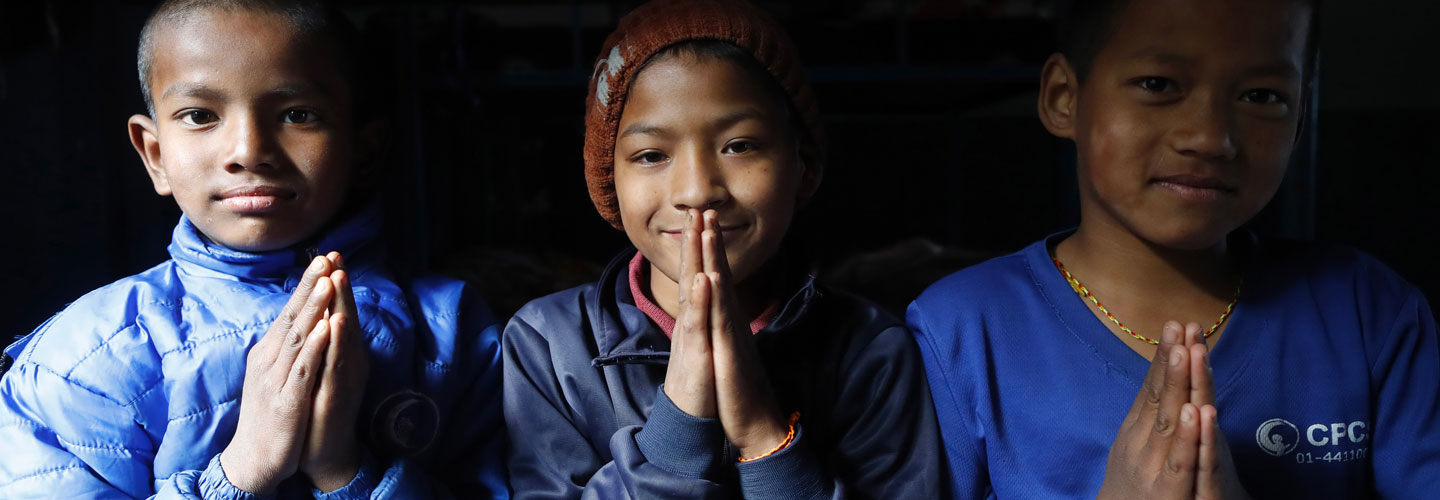
Promoting access to heart surgery for underprivileged children in the Indian Ocean region
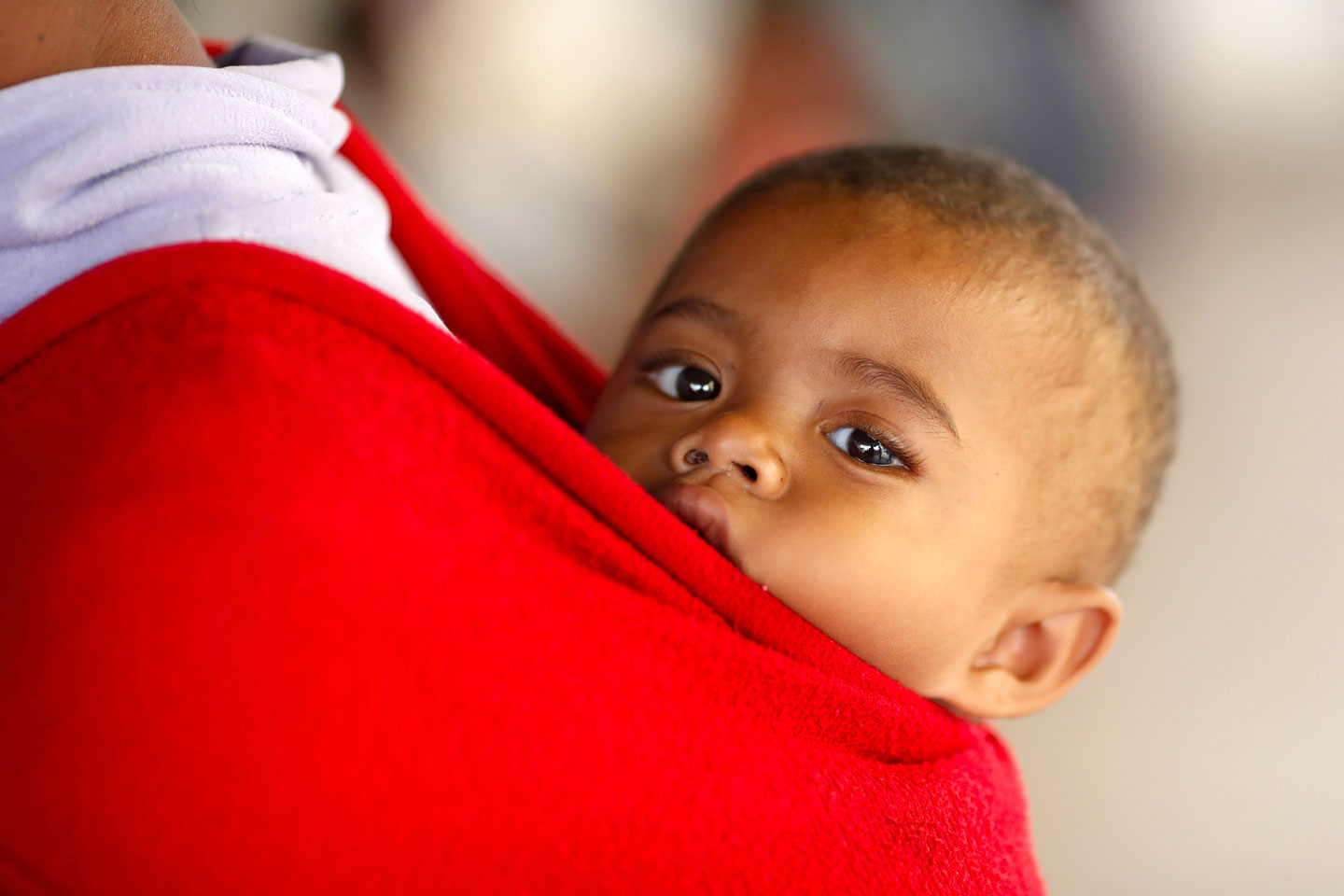
On the African continent, heart disease has a particularly high mortality and morbidity rate in children. This is due to difficulties in diagnosis and a lack of financial resources, as well as a lack of specialized medical expertise, a lack of health infrastructure and a care offer that has for too long focused on adult patients.
Selon l’Organisation mondiale de la Santé (OMS), 0,5 à 3 % des enfants en âge d’être scolarisés souffrent de malformations cardiaques sévères.
D’après la revue scientifique médicale The Lancet, 33 millions de personnes vivent sous le seuil de pauvreté suite au paiement de soins chirurgicaux.
Selon l’OMS, on compte 0,7 spécialiste (chirurgie, anesthésie, obstétrique) pour 100 000 habitants contre les 20 à 40 spécialistes recommandés.
To reduce infant mortality in East Africa and the Indian Ocean, La Chaîne de l’Espoir, with the help of local partners, is stepping up its actions to meet the needs of underprivileged children suffering from heart disease and requiring surgical treatment. These local partners are numerous:
- In Madagascar: the Soavinandriana Hospital,
- In the Comoros: Centre Hospitalier National El-Maarouf, Hôpital Hombo – CHRI Anjouan and the local Maeecha association,
- In Mozambique: the Maputo Heart Institute,
- La Réunion: CHU Félix Guyon in Saint-Denis.
The objectives set for this program, which correspond to an estimated funding requirement of 500,000 euros per year for 3 years, are as follows:
- Financing access to heart surgery for underprivileged children,
- Strengthen the skills of surgical unit staff over the long term,
- Guarantee the detection and referral of cardiac children,
- Promote medical and scientific cooperation between the countries concerned.
The following actions are part of the pediatric cardiac surgery program currently being strengthened in Madagascar and deployed throughout the Indian Ocean:
- Organization of screening campaigns in and out of school,
- Carrying out simple and complex open-heart surgery on a “buddy” basis (to ensure a lasting transfer of skills from expert doctors to local doctors), either by La Chaîne de l’Espoir medical teams alone, or by local teams in complete autonomy,
- Post-operative follow-up of children treated in our program,
- Training doctors and paramedical staff in the warning signs of cardiac pathologies in children.
In the short and medium term, the program will have a direct, immediate and lasting impact. Thus, by 2025, we expect to :
Nearly 500 children
beneficiaries of our programs.
420 cardiac consultations
and 40 surgical operations.
25 medical and paramedical staff
trained in pediatric cardiology and surgery.
Two key players describe the Malagasy context and the positive impact of the program on the island. Dr. Jean-François Delambre, thoracic and cardiovascular surgeon at the CHU Félix Guyon in Saint-Denis de La Réunion and volunteer doctor for La Chaîne de l’Espoir, recalls the difficulties of access to care for children with heart disease: “Our aim is to create a local structure that will enable us to take care of Malagasy children so that they can undergo open-heart surgery. At present, there are thousands of children who cannot be treated. Of course, this venture has a cost: to operate on a small patient in Madagascar, the cost is around €5,000. We therefore need everyone’s generosity to make this feasible and to be able to operate on these children who are not lucky enough to have been born in the right place.”
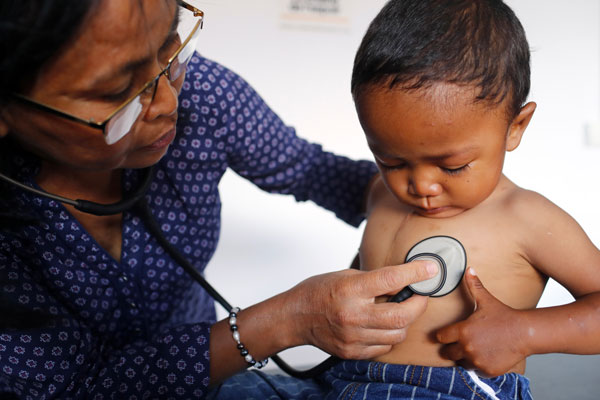
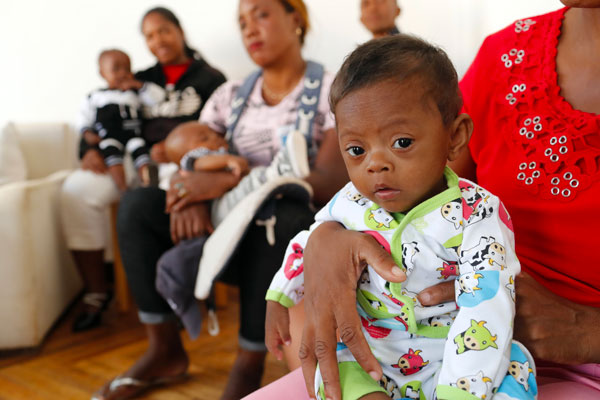
Dr Nivohanta Ramamonjiosoa, coordinator of La Chaîne de l’Espoir in Madagascar, looks forward to the first open hearts in Madagascar’s medical history: “I’ve been working with Doctor Delambre for over 20 years. He and his team travel to Madagascar twice a year to diagnose children under 18 suffering from heart disease. Thanks to their intervention, since 2016, the medical team at the Centre Hospitalier de Soavinandriana has been autonomous in the management of closed-heart operations. For several years now, we’ve had a strong desire – and need – to carry out open-heart surgery. Thanks to this project developed by La Chaîne de l’Espoir, notably concerning the rehabilitation and equipment of the cardiac surgery unit, our dream is finally going to become a reality!”
After 2025, every child with a heart condition will be diagnosed and receive the surgery they need.
Integrating health at school to raise awareness, screen and treat children in Togo, India, Nepal and Haiti
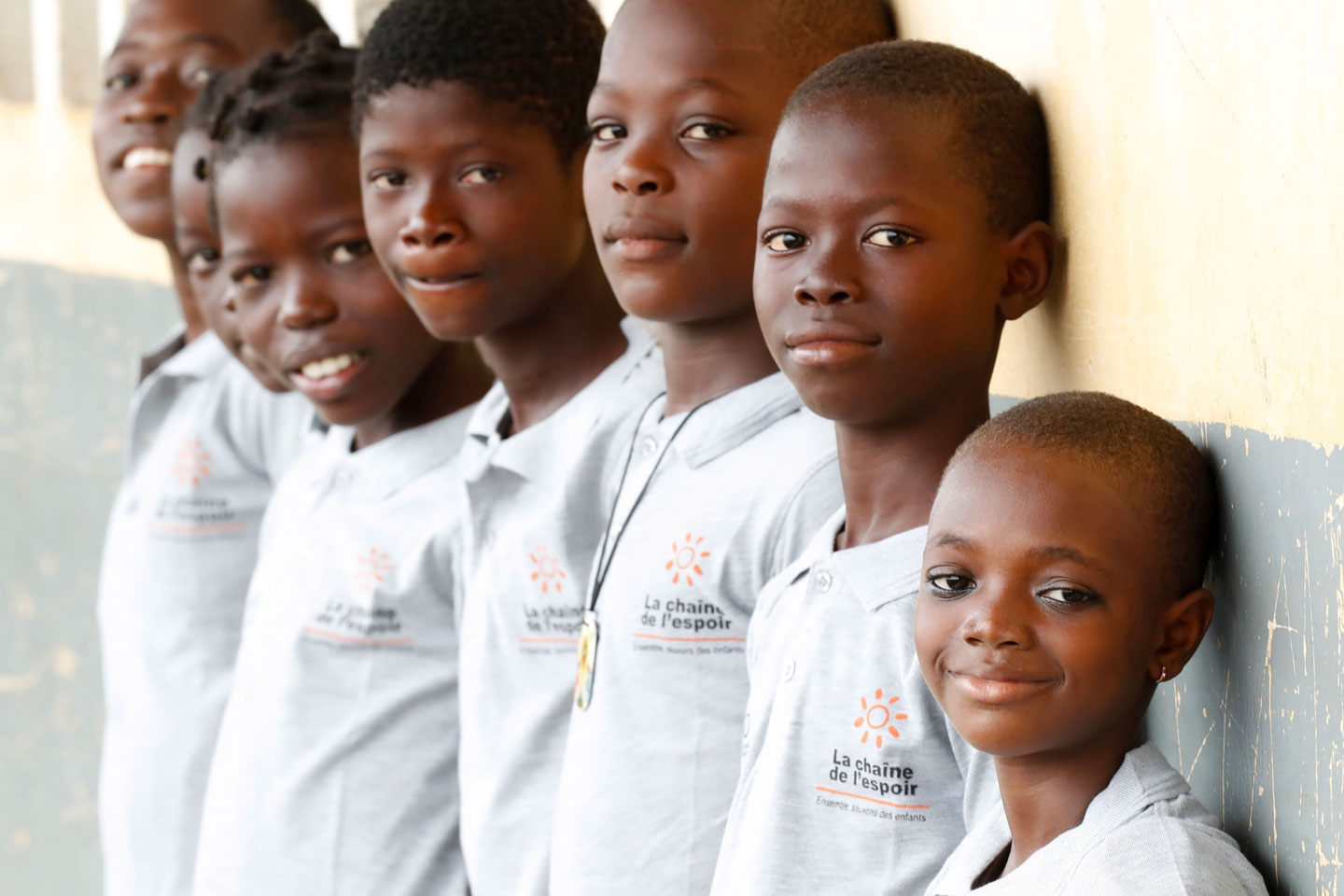
In the poorest countries, children are exposed to multiple risks of vulnerability. These include poverty, lack of access to education and health care, malnutrition, violence, the dangers of the street, gender inequalities, infringements of their rights… As a result, their proper development and their future as autonomous adults are in jeopardy.
Selon la NFHS, 15 % des enfants de 5 à 17 ans sont exploités en Inde (travail, prostitution, gang,...).
25 % des filles et 17 % des garçons travaillent quotidiennement au Népal.
45 ‰ des enfants décèdent avant l’âge de 5 ans au Togo.
To reduce health inequalities and promote academic success where children are most at risk, La Chaîne de l’Espoir deploys effective school health programs. Such initiatives help to prevent the onset, aggravation and spread of illnesses, as well as their long-term consequences. Good health is a prerequisite for quality education. Conversely, a good education gives children and families the keys to a lasting improvement in their health.
The objectives set for this program, which correspond to an estimated funding requirement of 378,000 euros per year for 3 years, are as follows:
- Guarantee free access to basic healthcare for disadvantaged children,
- Improving children’s health through care and prevention,
- Ensuring children have access to quality education,
- Keep them in school.
The following is a list of actions to be taken to achieve the above objectives:
- Access to healthcare: medical visits, oral and dental consultations, screening for learning disabilities, creation of health centers in schools, deployment of mobile clinics, distribution of medicines, eyeglasses, etc,
- Nutrition: financing of canteen meals to ensure that pupils attend school regularly and pay attention in class, distribution of snacks, treatment of malnutrition, etc,
- School success: supply of school materials, support for school operations, training of teachers to detect disorders, improvement of infrastructure and reception conditions, sanitation…
- Well-being and development: extracurricular activities aimed at building self-confidence, promoting children’s rights or non-violence in the school environment, creation of drop-in centers to take over from the school…,
- Health education: raising awareness among students and families to prevent prevent preventable illnesses, ensure continuity and fulfillment in their schooling and pass on good habits in the long term, sexual and reproductive education to prevent abuse, forced marriages and early pregnancies, distribution of hygiene kits….
This program, with itsdirect, immediate and lasting impact, is already making significant progress and achievements.
En Inde
1 500 enfants en danger suivis médicalement,
1 350 enfants soutenus dans leur scolarité et leur bien-être,
40 000 consultations médicales réalisées en 2022.
Au Togo
Plus de 21 000 élèves bénéficiaires au sein de 16 établissements scolaires,
500 élèves vulnérables aidés individuellement.
Au Népal
9 700 enfants et 7 000 familles bénéficiaires,
41 écoles et 4 centres régionaux accompagnés.
À Haïti
2 500 élèves soutenus,
10 écoles accompagnées.
Espoir Datchidi, head of our Togo-Benin office, explains: “School health interventions have had a significant impact on knowledge and practices in schools. From 2019 to 2021, the rate of violence perpetrated by teachers on their pupils was reduced. The rate of pupils aware of the risk of early pregnancy has increased, leading to a 25% reduction in early pregnancies in schools. Health education and the screening and management of learning disabilities have undoubtedly had an impact on the behaviour and practices of beneficiaries in the school communities in our intervention zone”.
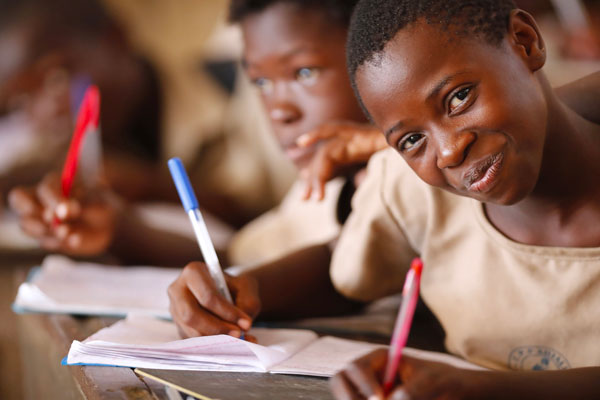
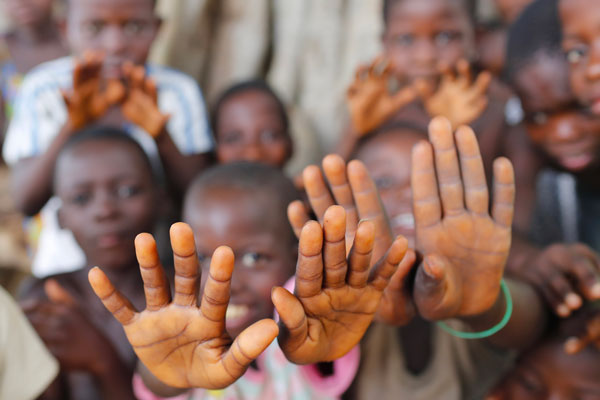
Dr. Laurence Boutin, pediatrician, deputy medical director and school health referent at La Chaîne de l’Espoir, confirms the positive impact of our health programs deployed in schools, which enable “early detection of disorders in schoolchildren” before adding: “Similarly, raising awareness among children and the educational community of key themes such as hygiene, nutrition and the prevention of domestic accidents is a real added value for a healthy environment and for the development of children in these countries.”

